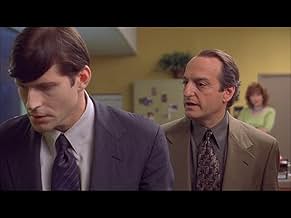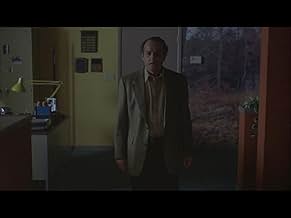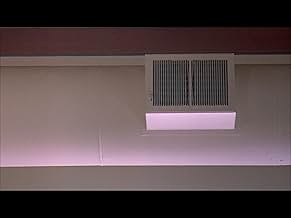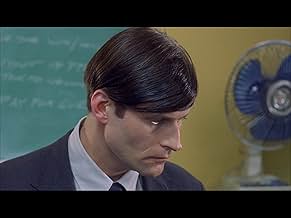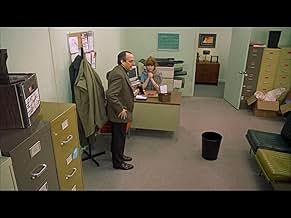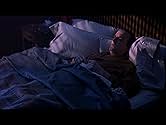IMDb रेटिंग
6.4/10
2.3 हज़ार
आपकी रेटिंग
अपनी भाषा में प्लॉट जोड़ेंA clueless boss has no idea what to do with his mundane office worker whose refusal of duties only gets worse each passing minute.A clueless boss has no idea what to do with his mundane office worker whose refusal of duties only gets worse each passing minute.A clueless boss has no idea what to do with his mundane office worker whose refusal of duties only gets worse each passing minute.
- निर्देशक
- लेखक
- स्टार
- पुरस्कार
- कुल 1 नामांकन
Stu Klitsner
- Professor Bum
- (as Stuart Klitsner)
Catherine DiNapoli
- Rocky's Girlfriend
- (as Catherine di Napoli)
फ़ीचर्ड समीक्षाएं
7B24
The film touches on some parts of the original story very aptly. I thought the Chaykin-Piscopo match was very close indeed to what Melville intended. As to Crispin Glover, no other movie actor of his stature is creepy enough and palpably slow-witted enough to fit the role -- not even the younger editions of a Brando or Hopper or Walken, who would overact monstrously in one form or another.
Most viewers seem to surrender to the misconception that the story is all about Bartleby. In fact, the narrator undergoes the most profound change within its context. And in that sense this film version fails because the Paymer character is made out to be a complete sap, rather than the seriously introspective and well-educated man of the original.
No one in 1853 knew anything of co-dependency in relation to addictions and other mental disorders, but Melville was prescient in that regard. The apparent despondency of Bartleby (characterized in the original as late of the Dead Letter Office) has no bounds, but it is in his employer's character we are led to see that this relatively new concept involving an excess of identification with the subject person can result in similar debilitation on the part of the caregiver.
It falls as well into the category of feature-length films based on short stories destroyed by too much padding and extraneous activity we used to call "stage business." It should be as spare as the slowly emptying mind of Bartleby himself.
Most viewers seem to surrender to the misconception that the story is all about Bartleby. In fact, the narrator undergoes the most profound change within its context. And in that sense this film version fails because the Paymer character is made out to be a complete sap, rather than the seriously introspective and well-educated man of the original.
No one in 1853 knew anything of co-dependency in relation to addictions and other mental disorders, but Melville was prescient in that regard. The apparent despondency of Bartleby (characterized in the original as late of the Dead Letter Office) has no bounds, but it is in his employer's character we are led to see that this relatively new concept involving an excess of identification with the subject person can result in similar debilitation on the part of the caregiver.
It falls as well into the category of feature-length films based on short stories destroyed by too much padding and extraneous activity we used to call "stage business." It should be as spare as the slowly emptying mind of Bartleby himself.
Don't know if Melville would even recognize his marvelous short story as translated into this film, or even if he'd approve...although I think he might...because the spirit of the original is here.
The satire of office shenanigans as presented by Jonathan Parker brings humor to this rather sad tale of a man determined to bring his intransigent self to the workplace and even to life itself... in the extreme. The overall effect is humane and even when the laughter comes we know something poignant is going on. David Paymer is superb as the frustrated, distraught but empathetic boss who tries to get Bartleby to be a responsive, reasonable worker/person, to no avail. Crispin Glover is a rather ghostly looking Bartleby, in a performance that demands withholding, a difficult task, but one he meets quite well.
This is good entertainment and food for thought...not often the case in movies these days.
The satire of office shenanigans as presented by Jonathan Parker brings humor to this rather sad tale of a man determined to bring his intransigent self to the workplace and even to life itself... in the extreme. The overall effect is humane and even when the laughter comes we know something poignant is going on. David Paymer is superb as the frustrated, distraught but empathetic boss who tries to get Bartleby to be a responsive, reasonable worker/person, to no avail. Crispin Glover is a rather ghostly looking Bartleby, in a performance that demands withholding, a difficult task, but one he meets quite well.
This is good entertainment and food for thought...not often the case in movies these days.
The head of a public records office advertises for a new employee. Only one person responds--Bartleby, a former postal worker who at first files like a demon then lapses into apathy. Bartleby stands all day looking at an air vent in the ceiling, responding to every request from his boss and coworkers with, "I would prefer not to." Eventually the boss retaliates with passive-aggressive acts aimed at getting rid of the man. Till the very end, however, Bartleby remains an enigma, a human cipher who refuses to give up his secrets.
Hardly an engaging story premise? That's what I thought when I trudged through Herman Melville's mid-nineteenth century story "Bartleby the Scrivener" in college lit class. Sure, the story has an important theme and some interesting symbolism, but it's also dull, dull, dull. However, director Jonathan Parker has taken the best sort of revenge on this canonical work of American literature; he's turned it into a zany, low-budget, laugh fest--getting across many of the essential ideas while also entertaining his audience. Parker has approached the sort of exaggerated, stale, depressing office atmosphere seen at the beginning of "Joe Versus the Volcano" and turned it inside out, covering it with a colorful, kitschy facade to inflate the absurdity of modern information mills.
Essential to the success of the film is the fine ensemble cast. Crispin Glover deserves more lead roles, and though with Bartleby he does spend most of his time immobile and silent, perhaps no other actor can accomplish more with simple posture, well-manipulated expressions, and quirky movement. Glenne Headly is a scream in her exaggerated seduction attempts aimed at Seymour Cassel. Joe Piscopo is also in fine form as the office macho man, though he has aged dramatically since we saw him last in, what--"Wise Guys"? Maury Chaykin gives the overweight and nerve-racked Ernie a comic flair, playing with his desktop windup toys only to flinch every time they jump, and pulling off an impressive physical comedy scene involving a sandwich, a photocopier, and a watercooler. Finally, David Paymer as "The Boss" provides a solid focus for the film with his adaptive performance of a complex character.
Hardly an engaging story premise? That's what I thought when I trudged through Herman Melville's mid-nineteenth century story "Bartleby the Scrivener" in college lit class. Sure, the story has an important theme and some interesting symbolism, but it's also dull, dull, dull. However, director Jonathan Parker has taken the best sort of revenge on this canonical work of American literature; he's turned it into a zany, low-budget, laugh fest--getting across many of the essential ideas while also entertaining his audience. Parker has approached the sort of exaggerated, stale, depressing office atmosphere seen at the beginning of "Joe Versus the Volcano" and turned it inside out, covering it with a colorful, kitschy facade to inflate the absurdity of modern information mills.
Essential to the success of the film is the fine ensemble cast. Crispin Glover deserves more lead roles, and though with Bartleby he does spend most of his time immobile and silent, perhaps no other actor can accomplish more with simple posture, well-manipulated expressions, and quirky movement. Glenne Headly is a scream in her exaggerated seduction attempts aimed at Seymour Cassel. Joe Piscopo is also in fine form as the office macho man, though he has aged dramatically since we saw him last in, what--"Wise Guys"? Maury Chaykin gives the overweight and nerve-racked Ernie a comic flair, playing with his desktop windup toys only to flinch every time they jump, and pulling off an impressive physical comedy scene involving a sandwich, a photocopier, and a watercooler. Finally, David Paymer as "The Boss" provides a solid focus for the film with his adaptive performance of a complex character.
Herman Melville's `Bartleby the Scrivener' has always been one of my all-time favorite short stories, a masterpiece of tone that features one of the most enigmatic characters in literary history. With devastating wit and understated irony along with a keen appreciation for the absurdist and the surreal - Melville tells the tale of a well meaning though banally efficient pragmatist who is forced to reconsider his values when he runs up against a certified (and perhaps certifiably insane) nonconformist. After he hires Bartleby to be a clerk in his office, the (unnamed) employer quickly discovers that the taciturn, quirky young man has no intention of doing any work - and, even more strangely, that he feels no compulsion to explain his state of self-imposed inertia. What makes Bartleby fascinating is that he is a nonconformist simply by nature and not because he has any real bone to pick with society or the people around him. This lack of explanation frustrates the boss, of course, and some readers as well. But it is Bartleby's defining phrase, `I would prefer not to' - delivered like a refrain throughout the course of the story - that speaks for those in society who question the value and purpose of the myriad irrelevant tasks we are compelled to perform as we make our way through life.
Melville conceived his story as a stinging indictment aimed against the dehumanizing effect of the business world's bureaucratic structure. How appropriate, then, that the makers of this current film version (now called simply `Bartleby') have chosen to set the tale in the present day, when that guiding philosophy has become, if anything, even more pronounced. David Paymer is splendid as the public records office manager who finds himself embroiled in an epic battle of wills against a force he cannot understand yet, in some bizarre fashion, can also not help identifying with and admiring. Crispin Glover is the pasty-faced Bartleby who seems to slip further and further into a state of catatonic madness as the story progresses. In their screenplay, Jonathan Parker (who also directed the film) and Catherine Di Napoli have retained the flavor of the original, combining hilarious and poignant moments in roughly equal measure. For even while we are laughing at the absurdity of both Bartleby and the other eccentric staff members in the office, we are also being made aware as the boss is of just how unique and admirable a creature Bartleby truly is.
With its deliberate pacing, its starkly antiseptic, parti-colored sets and its eerily moody musical score (some of it reminiscent of Bernard Herrmann's work for `The Day the Earth Stood Still'), the film takes us to a highly stylized world where the events we see depicted come to make total sense. Only the most blatant realist will be inspired to question the wisdom of the main character's actions concerning Bartleby. All the rest of us will see the boss for the open-minded humanitarian Melville intended him to be.
Parker has pulled together an interestingly offbeat group of actors to serve as his supporting cast, including Dick Martin, Joe Piscopo and Carrie Snodgrass. Glenne Headly is particularly wonderful as a flirtatious office worker who spends most of her time making suggestive comments, gestures and even foodstuffs to lure men her way.
It's the extraordinarily controlled and brilliantly delivered deadpan humor that makes `Bartleby' an adaptation worthy of its source. This movie proves that Melville's nonpareil creation will forever be a timeless tale.
Melville conceived his story as a stinging indictment aimed against the dehumanizing effect of the business world's bureaucratic structure. How appropriate, then, that the makers of this current film version (now called simply `Bartleby') have chosen to set the tale in the present day, when that guiding philosophy has become, if anything, even more pronounced. David Paymer is splendid as the public records office manager who finds himself embroiled in an epic battle of wills against a force he cannot understand yet, in some bizarre fashion, can also not help identifying with and admiring. Crispin Glover is the pasty-faced Bartleby who seems to slip further and further into a state of catatonic madness as the story progresses. In their screenplay, Jonathan Parker (who also directed the film) and Catherine Di Napoli have retained the flavor of the original, combining hilarious and poignant moments in roughly equal measure. For even while we are laughing at the absurdity of both Bartleby and the other eccentric staff members in the office, we are also being made aware as the boss is of just how unique and admirable a creature Bartleby truly is.
With its deliberate pacing, its starkly antiseptic, parti-colored sets and its eerily moody musical score (some of it reminiscent of Bernard Herrmann's work for `The Day the Earth Stood Still'), the film takes us to a highly stylized world where the events we see depicted come to make total sense. Only the most blatant realist will be inspired to question the wisdom of the main character's actions concerning Bartleby. All the rest of us will see the boss for the open-minded humanitarian Melville intended him to be.
Parker has pulled together an interestingly offbeat group of actors to serve as his supporting cast, including Dick Martin, Joe Piscopo and Carrie Snodgrass. Glenne Headly is particularly wonderful as a flirtatious office worker who spends most of her time making suggestive comments, gestures and even foodstuffs to lure men her way.
It's the extraordinarily controlled and brilliantly delivered deadpan humor that makes `Bartleby' an adaptation worthy of its source. This movie proves that Melville's nonpareil creation will forever be a timeless tale.
I loved this film and I cannot believe how so few critics liked it. What were they thinking? Apparently one critic thought since it was based on a short story that the film should be shorter. Of course, once one critic says its too long, every other critic has to agree. I guess David Mamet is an exception to the rule. Bartleby is not too long. It deserves it's running time so that we can absorb the story more closely. When we hear Bartleby repeat the same words: "I'd prefer not to" we are not given any explanation for the comment but yet it becomes extremely poignant. Eventually everyone in the office begins to use the word "prefer" and we see how Bartleby has affected the workplace like a disease. The film is very bizarre particularly because of the way the boss reacts to Bartleby. Instead of just firing the guy for not doing his job, he tries to reason with him. Eventually Barlteby gets in an even more bizarre predicament that has even more to do with just "prefering not to" work. The boss is obsessed with Bartleby and the film turns very Kafkaesque. We see a capitalist scenario where people topple on another for greed, power and respect. The film is based on the short story "Bartleby the Scrivener" by Herman Melville. It was appropriate to mention the source because the story seems very relevant not only to our modern culture but also to what Melville went after writing Moby Dick. The film also has a wonderful score with a Theramin instrument and a brilliant cinematography.
क्या आपको पता है
- ट्रिवियाDick Martin's final acting performance.
- गूफ़When "The Boss" goes to check out a new place for their office, he settles on a place with no electrical outlets on 3 of the walls. (The 4th wall is not shown) There's a Xerox and every desk has a computer. This arrangement would be completely unacceptable for any office manager.
- क्रेज़ी क्रेडिटBefore the opening credits begin, viewers are given a portrait and short biography of Herman Melville, upon whose story the film is loosely based.
- कनेक्शनReferenced in Stargate: Atlantis: The Lost Boys (2005)
- साउंडट्रैकPhantasie #3 In D Minor
Written by Wolfgang Amadeus Mozart (as Mozart)
Background music on piano by Nancy Spottiswoode
टॉप पसंद
रेटिंग देने के लिए साइन-इन करें और वैयक्तिकृत सुझावों के लिए वॉचलिस्ट करें
- How long is Bartleby?Alexa द्वारा संचालित
विवरण
बॉक्स ऑफ़िस
- US और कनाडा में सकल
- $1,48,479
- US और कनाडा में पहले सप्ताह में कुल कमाई
- $14,599
- 27 मई 2002
- दुनिया भर में सकल
- $1,48,479
इस पेज में योगदान दें
किसी बदलाव का सुझाव दें या अनुपलब्ध कॉन्टेंट जोड़ें


